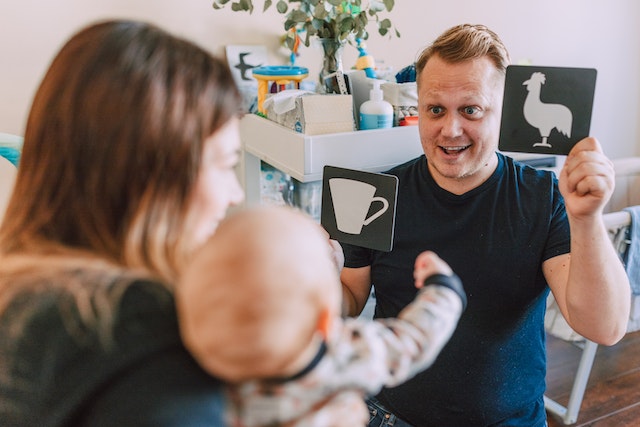Introduction:
Flash cards are a powerful tool for early childhood education, and they can be particularly effective in helping children learn the alphabet letters.
As an experienced teacher in one of the world’s best kindergartens, I have witnessed the positive impact of using flash cards to engage and educate young learners.
In this article, we will explore the benefits of using flash cards for babies and provide practical tips on how to make the most of this educational resource.
The Benefits of Flash Cards for Babies:
Flash cards offer numerous benefits when it comes to teaching babies the alphabet letters:
Visual Stimulation:
The colorful and engaging visuals on flash cards capture the attention of babies, stimulating their visual senses and piquing their curiosity.
Vocabulary Development:
Flash cards introduce babies to new words associated with each alphabet letter, helping them expand their vocabulary from an early age.
Letter Recognition:
By repeatedly exposing babies to the letters on the flash cards, they start to recognize and associate the shapes and sounds of each letter, laying the foundation for reading and writing skills.
Memory Enhancement:
The repetition and recall involved in using flash cards enhance babies’ memory skills, enabling them to retain information more effectively.
Choosing the Right Flash Cards:
When selecting flash cards for your baby, consider the following factors:
Age-Appropriate:
Opt for flash cards specifically designed for babies and toddlers, with large and clear letter displays, bright colors, and engaging illustrations.
Sturdy and Durable:
Babies love to explore and manipulate objects, so choose flash cards made from durable materials that can withstand their enthusiastic handling.
Multi-Sensory:
Look for flash cards that incorporate textures, tactile elements, or even sound effects to provide a multi-sensory learning experience for your baby.
Flash Card Activities for Babies:
Here are some practical tips on how to use flash cards effectively with your baby:
Start Simple:
Begin by introducing a few alphabet letters at a time, focusing on those most relevant to your baby’s world.
For example, start with letters from their name or objects they are familiar with.
Repetition is Key:
Repeat the flash card activity regularly to reinforce letter recognition.
Practice saying the letter aloud while pointing to it on the card.
Make it Interactive:
Encourage your baby to touch and feel the flash cards.
You can create a game by asking them to find specific letters or objects that start with the letter on the card.
Incorporate Play:
Integrate the flash cards into playtime. For example, you can use the flash cards as props for a storytelling session, associating each letter with a character or object in the story.
Keep it Fun:
Maintain a positive and playful atmosphere during flash card sessions.
Use a cheerful tone, provide lots of encouragement, and celebrate your baby’s progress.
Gradually Increase Complexity:
As your baby becomes more familiar with the alphabet letters, you can gradually introduce more letters and engage in activities that involve sequencing, matching, and even simple word formation using the flash cards.
Conclusion:
Flash cards are an effective tool for teaching babies the alphabet letters.
By incorporating visual stimulation, vocabulary development, and letter recognition, flash cards provide a fun and engaging way for babies to learn.
As an experienced teacher in one of the world’s best kindergartens, I have witnessed firsthand the positive impact of using flash cards in early childhood education.
Follow the tips provided in this article to make the most of flash cards as you guide your baby on their journey of learning the alphabet letters.
Embrace the joy of learning together and watch your baby’s language and cognitive skills flourish.
Remember to choose age-appropriate flash cards that are visually appealing and durable.
Keep the activities interactive and fun, incorporating play into the learning process.
Start with a few letters at a time and gradually increase the complexity as your baby progresses.
By providing a positive and supportive learning environment, you can foster a love for learning and lay a strong foundation for your baby’s future education.
As an experienced teacher in one of the world’s best kindergartens, I have seen the transformative power of flash cards in helping babies learn the alphabet letters.
By using these practical tips and engaging in regular flash card sessions, you are providing your baby with a valuable educational experience that will benefit them in their language development and overall cognitive growth.
So, gather your flash cards, create a joyful learning atmosphere, and embark on an exciting journey of alphabet discovery with your baby.
Watch as they delight in recognizing letters, building vocabulary, and developing important pre-reading skills.
With your guidance and the aid of flash cards, your baby will be well on their way to becoming a confident and proficient communicator.
Remember, learning should always be a joyful and positive experience for both you and your baby.
Enjoy this special time together, celebrate milestones, and revel in the wonders of your baby’s development. Happy flash card learning!


